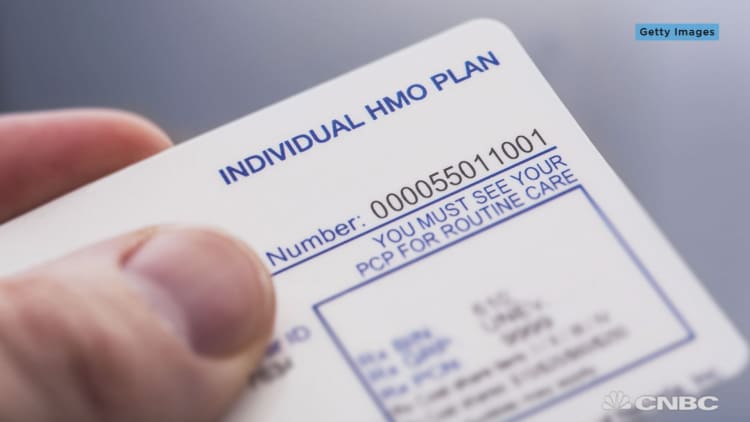If you are receiving Medicare, a new identification card is coming your way soon.
The Centers for Medicare & Medicaid Services plans to mail out the replacement cards to all of the program's 58.5 million recipients by April 2019, as mandated by Congress in 2015.
The noteworthy change? Your ID number.
Instead of displaying your Social Security number — which scammers can use to commit fraud — the new number will be one that is randomly assigned and unique to each Medicare recipient.
"The idea is to protect against identity theft," said Elizabeth Gavino, founder of Lewin & Gavino in New York and an independent broker and general agent for Medicare plans.
The nation's oldest Americans increasingly have been a prime target for identity theft. Among people age 65 or older, such incidents increased to 2.6 million in 2014 from 2.1 million in 2012, according to the most recent federal data.
Overall, about 16.7 million U.S. consumers were victims of identity fraud in 2017, according to a recent report from Javelin Strategy & Research.
Accessing a person's Social Security number is one of the easiest ways to commit some of the worst types of fraud, such as filing fake tax returns or opening lines of credit in the victim's name.
Scammers also can use that identifier to get medical care or prescriptions. In fact, half of medical identity theft victims say their information was fraudulently used to get government benefits like Medicare or Medicaid, according to a 2015 report from Ponemon Institute.
Elder financial fraud cases
| Issue | Percentage of cases reported |
|---|---|
| Third-party abuse/exploitation | 27% |
| Account distributions | 26% |
| Family member, trustee or power of attorney taking advantage | 23% |
| Diminished capacity | 12% |
| Combined diminished capacity and third-party abuse | 12% |
| Fraud | 6.30% |
| Elder exploitation | 5.70% |
| Friend, housekeeper or caretaker taking advantage | <1% |
| Excessive withdrawals | <1% |
Source: SOURCE: North American Securities Administrators Association
On top of the emotional toll that victims experience, fraud can damage a person's credit and result in inaccurate medical records and false medical claims.
Despite the removal of Social Security numbers from the new Medicare cards, criminals already are trying to work around that detail. There have been reports of fraudsters calling Medicare recipients with a variety of new scams, including one where the caller asks for payment if you want to receive your new card.
"No one with Medicare will be calling you about your new card," Gavino said. "If anyone does, it could be a scammer."
A transition period, during which you can use either your old ID number or the new one (called the Medicare Beneficiary Identifier or MBI), will run through the end of 2019.

Also, be aware that the cards will be sent out in waves over the next 12 months. That means not everyone will receive them at the same time.
"Don't worry if your neighbor gets their new card and you don't," Gavino said. "You'll get it at some point within that one-year time frame."
If you've moved recently, make sure the Social Security Administration has your new address on file. Otherwise, you might not receive your new Medicare card.
For people who don't show their Medicare card when they visit the doctor or other health provider — those on an Advantage plan generally use a card issued by the insurer — Gavino recommends putting it away in a safe place, such as a fireproof lockbox or a safe deposit box.
More from Personal Finance:
Retire here to get the most out of your Social Security check
Trump proposal could push health premiums up by $2K for older Americans
These new rules will help protect older Americans from financial fraud


